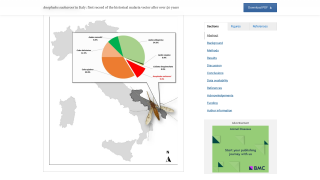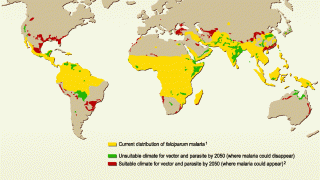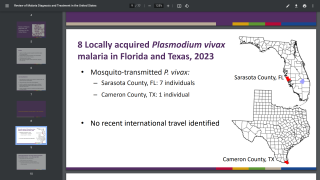Barrier Bednets Found Highly Effective in Preventing Malaria

Researchers from the London School of Tropical Medicine (LSTM) have designed a new bednet that can kill mosquitoes more efficiently than existing nets, in such a way that increases the effectiveness of insecticide used, while minimizing risk to the person inside the bednet.
These researchers said in this study published on December 2, 2019, ‘Barrier bednets that overcome insecticide resistance are feasible using existing insecticides and production technology.’
The LSTM team led by Professor Philip McCall, Ph.D., designed what they call the ‘Barrier Bednet’ as a solution to the increasing problem of resistance in African mosquito populations to pyrethroids, the main insecticide class currently used on bednets.
Using video-tracking systems developed with engineers from the University of Warwick, the team had already mapped the behavior of malaria mosquitoes around bednets, which allowed them to explore how and where mosquitoes could be targeted.
From this effort came the barrier net design, simply an extra panel of netting positioned above a standard bednet's roof, where mosquitoes collide with it as they fly back and forth above the net.
The results from initial studies were published in the journal Nature Microbiology and show that Barrier Bednets with an appropriate treatment were highly effective against wild insecticide-resistant Anopheles gambiae vectors in Burkina Faso, Africa.
Remarkably, this was the case even when the bednet was untreated and only the barrier carried insecticide.
Despite the apparent simplicity, the results are quite significant.
Dr. McCall explained in a press release, "Ensuring that long-lasting insecticidal bednets (LLINs) remain effective despite insecticide resistance is a global health priority and a research goal for those looking for effective tools to prevent the spread of malaria.”
“Putting insecticide on the panel above the roof of the net means that it is beyond the reach of children, doesn't come into contact with those sleeping inside the net, and is rarely touched during routine daily activity.”
“This paves the way to use insecticides previously unavailable for bednets because of possible health risks from direct contact.”
“Plus, if we only use the effective insecticide on the barrier panel, it means that manufacturing nets would cost a lot less, as would the over-the-counter price for the people that need them. It also means we could consider additional insecticides that might have been ruled out previously as too expensive.”
"Insecticide-treated bednets are by far the most important method for preventing malaria in Africa and we cannot afford to lose them" continued Professor McCall.
“We believe that barrier bednets can match the efficacy of WHO's currently recommended nets and with minor modification, possibly become even more effective.”
“Importantly, because we can use current insecticides and production technology, functional Barrier Bednets could be ready for household deployment in at-risk communities in the very near future,” concluded Dr. McCall.
The research team hopes that this simple design can safeguard the central role of bednets in malaria control for many years.
Malaria news published by Vax Before Travel
Our Trust Standards: Medical Advisory Committee
























